Blog
Top Stories
Banking Conclave 3.0 Explores the Future of Banking Amidst Digital Transformation, Consolidation, and Regulatory Change
January 21, 2026
The Banking Conclave 3.0: Future of Banking, organised by the Bombay Chamber of Commerce & Industry, brought together senior bankers, policymakers, fintech leaders, and financial services experts to deliberate on how India’s banking system must evolve to remain resilient, inclusive, and future-ready. Held at the ITC Grand Central Hotel, Mumbai, the conclave examined the structural, technological, and regulatory shifts shaping the next decade of banking.
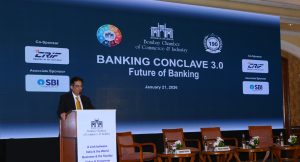
In his Welcome Address, Sandeep Khosla, Director General, Bombay Chamber of Commerce & Industry, highlighted the Chamber’s long-standing role as a neutral facilitator and an effective bridge between industry and government, fostering constructive dialogue on policy, regulation, and economic priorities. He noted that as the banking and financial services sector navigates rapid technological change, consolidation, and evolving regulatory expectations, such platforms play a critical role in aligning industry perspectives with public policy objectives. Emphasising the Chamber’s commitment to convening thought leadership and enabling informed discourse, he underscored the importance of collaborative engagement to ensure that India’s banking system remains resilient, inclusive, and future-ready.
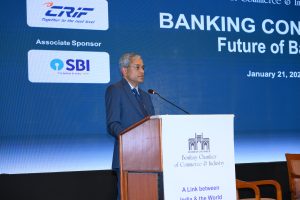
Delivering the Keynote Address, Rajiv Anand, President, Bombay Chamber and Managing Director & CEO, IndusInd Bank, offered a compelling perspective on the structural transformation underway in global and Indian banking. He observed that the industry is moving beyond a phase where incremental improvements, isolated digital initiatives, or marginal efficiency gains are sufficient to remain relevant. Instead, banking is being reshaped by deeper shifts in how value is created, how trust is earned, and how institutions engage with society.
Anand noted that while banks have traditionally been defined by balance sheets, capital adequacy, branch networks, and regulatory classifications, these dimensions alone are no longer adequate in a world reorganised by technology, data, and changing customer expectations. He emphasised that India’s unique advantage lies in its digital public infrastructure, which has fundamentally altered how citizens participate in the economy. Platforms such as Aadhaar, UPI, Account Aggregator, and the JAM trinity (Jan Dhan–Aadhaar–Mobile) have not merely digitised financial services, but have embedded finance into everyday life, lowered transaction friction, expanded access, and strengthened trust at population scale.
Highlighting India as one of the few countries to have built such infrastructure deliberately and at scale in a short period of time, Anand stressed that technology alone does not transform societies—it only enables transformation. He called upon banks to view themselves not merely as providers of financial products, but as stewards of economic participation, supporting mobility, productivity, and long-term growth. He pointed to the rapid formalisation of enterprises, the digitisation of financial behaviour, the rise of first-generation entrepreneurs, and a young, mobile-first population as defining features of India’s next growth phase.
At the same time, Anand acknowledged that despite progress, credit penetration remains modest, large segments of MSMEs remain underserved, and many households remain vulnerable to income shocks and uncertainty. He underscored the need to rethink how capital is allocated, how risk is assessed, and how customer journeys are designed. He cautioned that merely replicating old banking models on new digital platforms will not deliver meaningful transformation.
He further noted that banking institutions have historically been organised around products—deposits, loans, insurance, and investments—whereas customers experience finance through life goals such as building livelihoods, growing businesses, educating children, caring for families, and preparing for the future. Anand stressed that banks that continue to prioritise internal product structures over customer outcomes risk losing relevance in an increasingly aspiration-driven economy.
Addressing the role of emerging technologies, Anand observed that artificial intelligence represents a fundamental shift—not simply in automation, but in how decisions are made, patterns are detected, risks are assessed, and systems are managed. He emphasised that the future of banking will belong to institutions that combine technological capability with ethical foundations, regulatory responsibility, and a long-term partnership approach to customers.
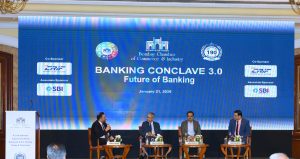
The first panel discussion, “Changing Face of Banking,” examined how technology, data analytics, and new-age players are redefining the banking landscape. Moderated by Yashraj Erande, India Leader – Financial Services and Global Leader – Fintech, Boston Consulting Group, the panel featured Rajiv Anand, Anirban Mukherjee, CEO, PayU, and Sachin Seth, Regional Managing Director, India and South Asia, CRIF. The discussion focused on the convergence of banks and fintechs, the growing role of alternative data in credit assessment, and the shift towards embedded finance and platform-based banking models.
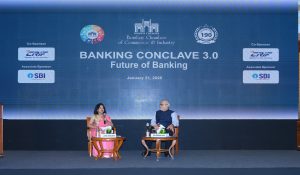
A key highlight of the conclave was the Fireside Discussion on “The Bank of 2030,” featuring Shri Rajeshwar Rao, Former Deputy Governor, Reserve Bank of India, in conversation with Latha Venkatesh, Executive Editor, CNBC-TV18. The discussion focused on how banks must navigate a rapidly evolving financial ecosystem marked by digital disruption, changing liability structures, the growing role of non-bank players, and increasing interlinkages across the financial system. Shri Rao emphasised the need to balance innovation with stability, underscoring the importance of sound governance, robust risk management, adequate capital and liquidity, and a regulatory framework that remains flexible while safeguarding systemic trust. The conversation offered a forward-looking regulatory perspective on consolidation, competition, and resilience in a technology-driven banking landscape.
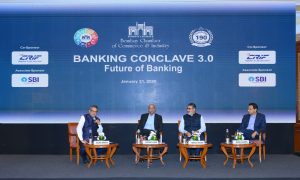
The second panel, “Consolidation and Regulation in Banking,” moderated by Abizer Diwanji, Founder, NeoStrat Advisors LLP, featured Prashant Kumar, MD & CEO, YES BANK, Neeraj Makin, Senior Executive Vice President & Group Head – Strategy, Analytics & Venture Capital, Emirates NBD, and Anshul Agarwal, Managing Director and Head – Financial Institutions Group (FIG), Avendus Capital. The panel examined consolidation as a strategic response to scale, competitiveness, and regulatory demands, while underscoring the importance of governance, capital strength, and institutional integration.
The conclave concluded with a Vote of Thanks by Sandeep Khosla, followed by networking. Banking Conclave 3.0 reaffirmed the Bombay Chamber’s role as a convenor of meaningful dialogue between industry and policymakers, and offered a forward-looking perspective on how Indian banking must evolve to serve a dynamic, diverse, and rapidly transforming economy.
Bombay Chamber organises conclave on Reimagining MSME growth: Opportunities in a smart finance era
Bombay Chamber organises conclave on Reimagining MSME growth: Opportunities in a smart finance era
Bombay Chamber recently organised a MSME Conclave that explored innovative financing, trade finance, factoring, and working capital solutions designed to fuel MSME growth in the smart finance era.
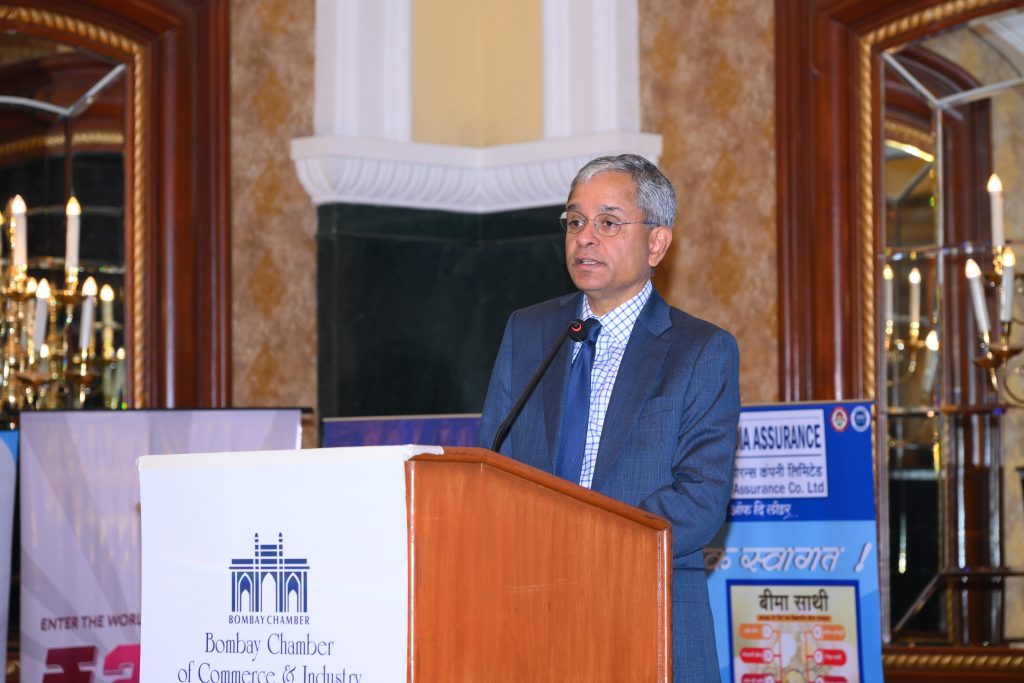
In his welcome address, Rajiv Anand, President, Bombay Chamber & MD & CEO, IndusInd Bank said, “This conclave brings together enterprise leaders, policymakers, financial institutions, and global trade stakeholders to deliberate on the key enablers of MSME advancement. I am confident this conclave will empower MSMEs with the knowledge, resources, and support needed to address challenges in growth, talent management, financing, and internationalisation, enabling them to drive sustainable development and contribute meaningfully to the nation’s economy.”
.
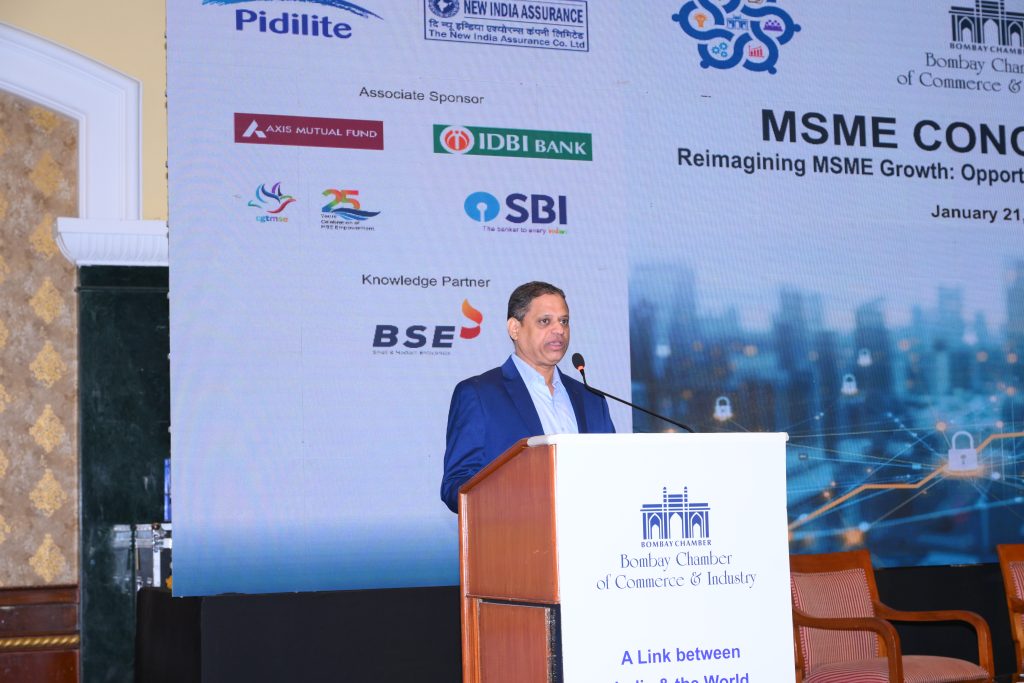
Setting the theme for the conclave, R Srinivasan, Co-Chairperson – MSME Forum, Bombay Chamber & Director, AIRA Consulting, said that at a time when global supply chains are being realigned and digital transformation is reshaping business models, Indian MSMEs are at a critical inflection point. “With access to smart, scalable, and innovative financing solutions, MSMEs have a unique opportunity to enhance competitiveness and integrate more deeply into global value chains,” he added.
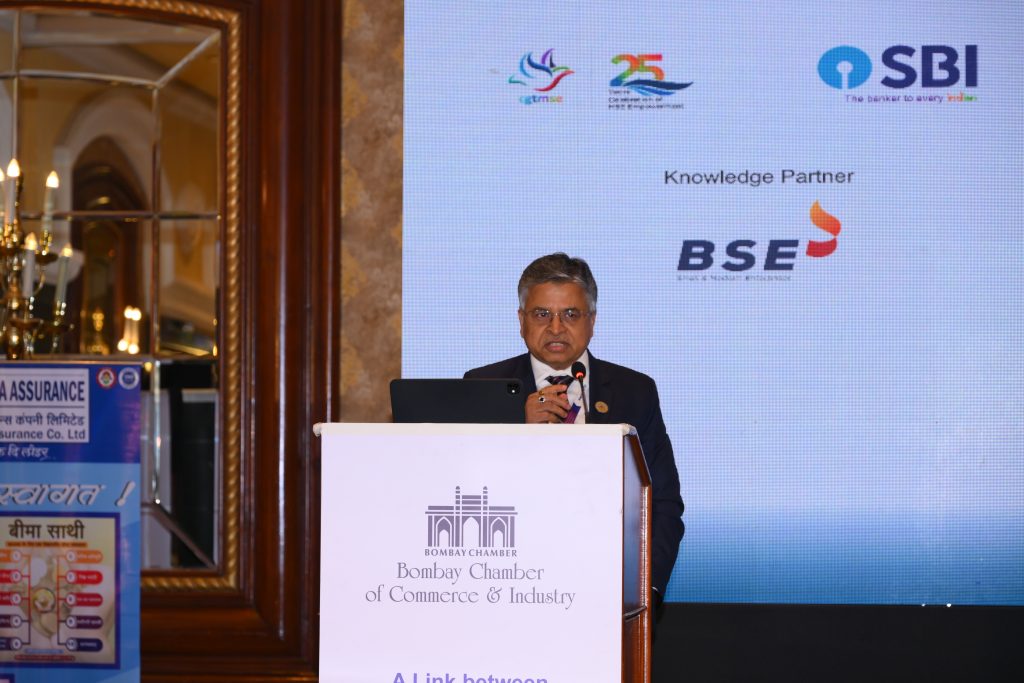
In his keynote address, Rajesh Kumar, Deputy Managing Director (Retail – Agri & SME), State Bank of India, stated, “Inclusion of all MSMEs must be intentional. There should be awareness drives for digital offerings from the government, data privacy and ethical use of technology. Technology should not replace human capital; it should co-operate with the existing working
structure.”
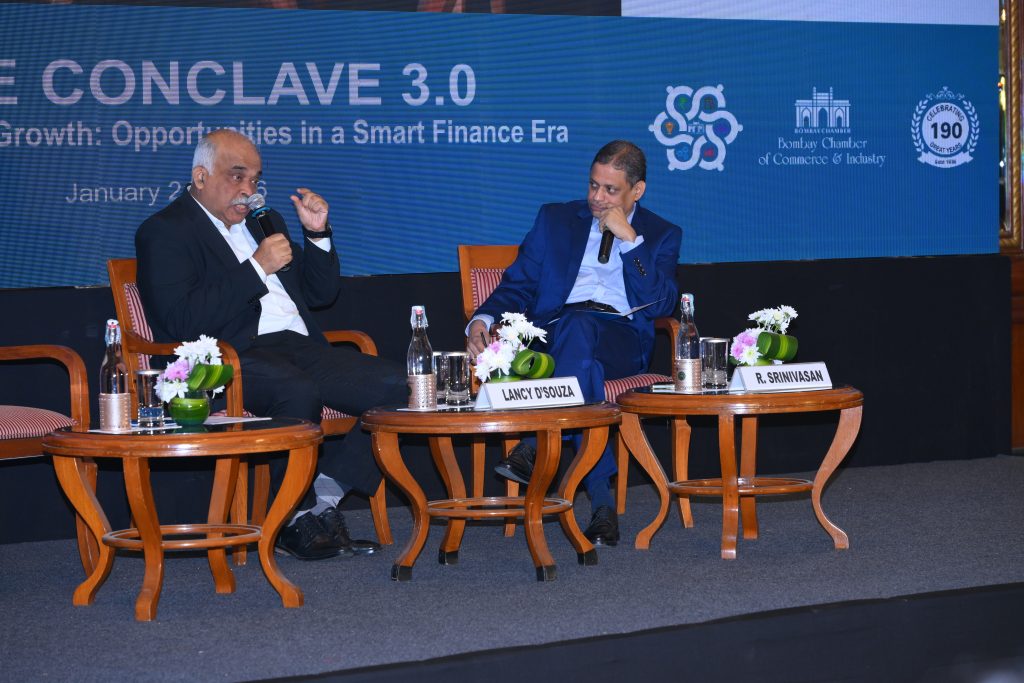
This was followed by a Fireside Chat on The Implications of the New Labour Codes on MSMEs covering practical insights into their implications for MSMEs, including compliance, workforce management, and operational efficiency. R. Srinivasan moderated the session with Lancy D’Souza, Advocate & Legal Advisor, Bombay Chamber as the speaker.
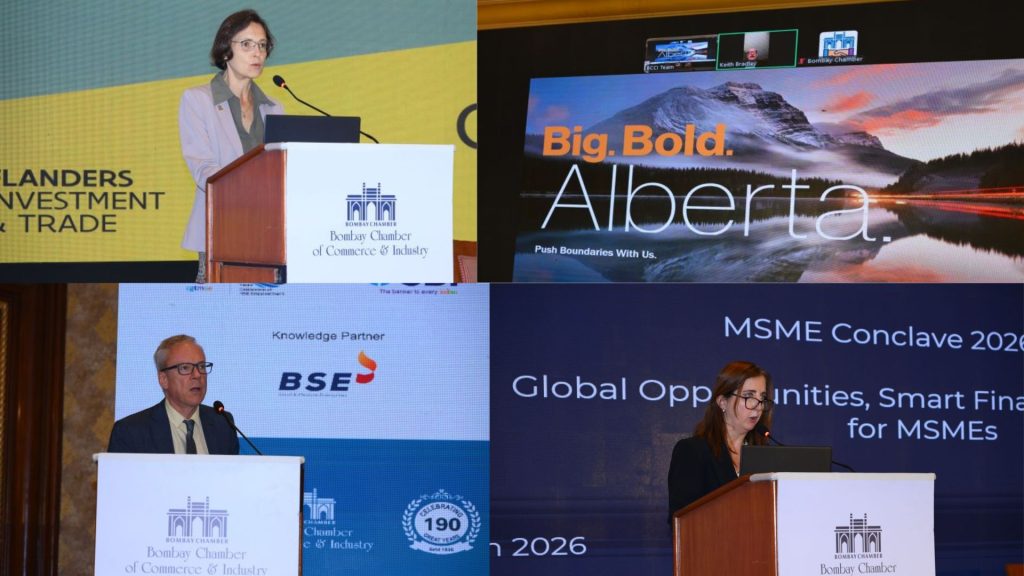
The next session was on Country Spotlight: Trade Corridors for Indian MSMEs, where Honourable Consul Generals and Trade Commissioners of Argentina, Finland, Flanders and Alberta Canada shared first-hand perspectives on global business and trade opportunities including sourcing, technology partnerships, market access and export facilitation. H.E. Erik af Hällström, Consul General, Consulate General of Finland, Mumbai; Keith Bradley, Chief Operating Officer Invest Alberta and the Government of Alberta, Canada; Eva Verstraelen, Trade & Investment Commissioner for Flanders (FIT) in Mumbai and Maria Silvina Costa, Head of Economic and Trade Section, Consulate General & Trade Centre of the Argentine Republic in Mumbai made the presentations.
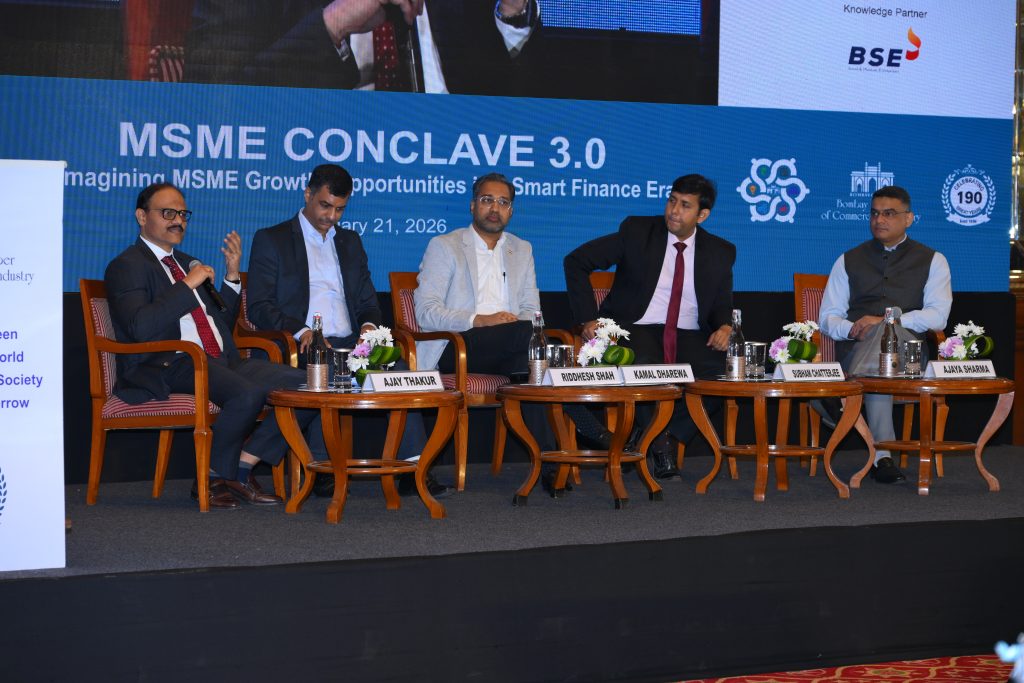
A panel discussion on “Powering India’s Growth Cycle through MSME IPOs,” aimed to familiarise enterprises with the IPO process and highlight how public markets can support long-term expansion. The panelists were Riddhesh Shah, Deputy Vice President, BSE SME & Startups, BSE; Kamal Dharewa, Founder, Ashwath Capital | Capital Markets & SME IPO Expert; Subham Chatterjee, Associate Partner, ALMT Legal and Ajaya Sharma, Senior Vice President- Capital Market Communication Group, Adfactors PR. The panel was moderated by Ajay Thakur, CEO & Managing Partner, TGI SME Capital Advisors LLP.
Punjab publishes draft Industrial Relations (Punjab) Rules, 2026
Punjab publishes draft Industrial Relations (Punjab) Rules, 2026
Notification attached.
Punjab publishes draft Code on Wages (Punjab) rules, 2026
Punjab publishes draft Code on Wages (Punjab) rules, 2026.
Notification attached.
Bids -2
Ref.: MCM/ADM/11
The Director General
Bombay Chamber of Commerce and Industry
Mackinnon Mackenzie Building
3rd floor, 4, Shoorji Vallabhdas Road
Ballard Estate, Mumbai – 400 001
Dear Sir/Madam,
Please see enclosed notices for invitation for bids from organizations in Mauritius.
Prospective bidders may be requested to regularly visit the website to take cognizance of any addendum and/or clarification(s) issued.
The Consulate would highly appreciate if you could kindly circulate the Notices among the members of your Organization.
Thank you for your understanding and cooperation.
Yours sincerely,
1107, Regent Chambers
11th Floor, Jamnalal Bajaj Marg
208, Nariman Point
Mumbai – 400 021
Tel. : 022 22825421 /22
Fax No. 022 22845468
Maharashtra declares 15th January 2026 as a Public Holiday under NI Act in specified local bodies
Maharashtra declares 15th January 2026 as a Public Holiday under NI Act in specified local bodies.
Notification attached
Central Govt to consider representation for revision of wage ceiling limit under the Employees Provident Fund scheme – Supreme Court
Central Govt to consider representation for revision of wage ceiling limit under the Employees Provident Fund scheme –
Order attached
AYUSH exports climb 6.11% to USD 688.89 Million in 2024–25 amid export facilitation measures and trade agreement inclusion
AYUSH exports climb 6.11% to USD 688.89 Million in 2024–25 amid export facilitation measures and trade agreement inclusion
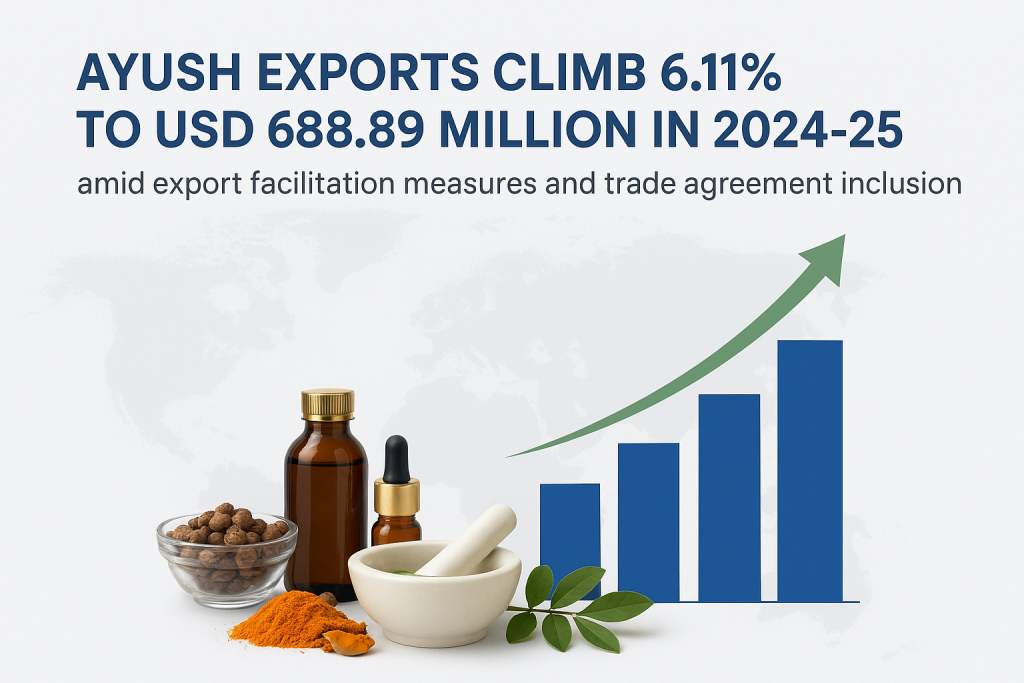
The Ayush Export Promotion Council (AYUSHEXCIL) observed its 4th Establishment Anniversary today in New Delhi in India’s efforts to promote exports of traditional systems of medicine and wellness products.
Since its formation, AYUSHEXCIL has undertaken several initiatives focused on capacity building of exporters, facilitation of export procedures and regulatory compliance, and the organisation of B2B meetings, international exhibitions, seminars, and outreach programmes in key overseas markets.
Exports of AYUSH and herbal products have registered a growth of 6.11 per cent, increasing from USD 649.2 million in 2023–24 to USD 688.89 million in 2024–25. Following the establishment of AYUSHEXCIL, this growth has accelerated, reflecting enhanced global outreach and rising international demand for India’s traditional medicine and herbal products.
India’s traditional medicine systems (AYUSH) have also received formal recognition in bilateral trade agreements, including the India–Oman CEPA and the India–New Zealand FTA, with dedicated annexes on health-related services and traditional medicine. AYUSHEXCIL has been entrusted with anchoring the Ayush Quality Mark programme of the Ministry of Ayush, launched by the Hon’ble Prime Minister during the 2nd WHO Summit on Traditional Medicine (17–19 December 2025), marking a key milestone in strengthening quality assurance and global recognition of AYUSH products.
As AYUSHEXCIL enters its fifth year, the Council aims to further strengthen international cooperation, leverage opportunities under Free Trade Agreements, promote quality and certification frameworks, and enhance global acceptance of India’s traditional systems of medicine.
The anniversary underscores India’s growing leadership in the global AYUSH and wellness economy, aligned with the vision of Atmanirbhar Bharat and Make in India.
AYUSHEXCIL was registered as a Section 8 company with the Registrar of Companies, New Delhi, on 4 January 2022, and was formally launched by Prime Minister Shri Narendra Modi during the Global AYUSH Investment and Innovation Summit held in Gandhinagar, Gujarat, on 20 April 2022. Subsequently, the Council was notified by the Directorate General of Foreign Trade (DGFT) on 31 July 2023 as the nodal Export Promotion Council for the AYUSH sector.
The Council functions in consultation with the Ministry of Ayush, with support from the Ministry of Commerce & Industry, to oversee exports of products and services related to Ayurveda, Yoga & Naturopathy, Unani, Siddha, Sowa-Rigpa, Homeopathy, and other Indian traditional healthcare systems.
Indian philanthropy : Tax law as a catalyst by Sudhir Kapadia, Past President, Bombay Chamber & Senior Advisor, EY
Indian philanthropy : Tax law as a catalyst by Sudhir Kapadia, Past President, Bombay Chamber & Senior Advisor, EY
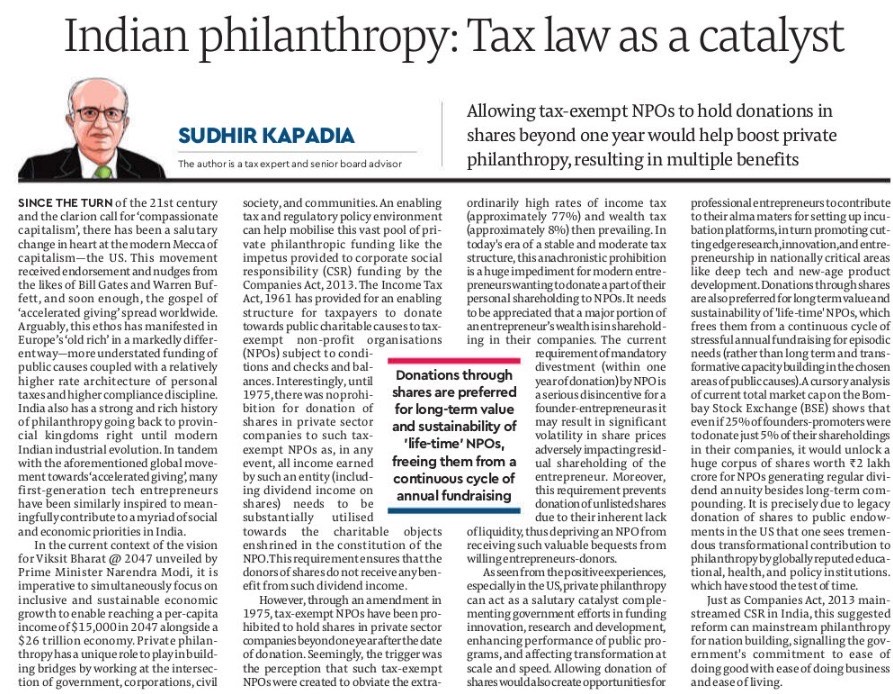
Bombay Chamber submits Pre-Budget Memorandum on Direct Tax for FY 2026–27
Bombay Chamber submits Pre-Budget Memorandum on Direct Tax for FY 2026–27
Mumbai: The Bombay Chamber of Commerce and Industry, through its Direct Tax Committee, has submitted its Pre-Budget Memorandum on Direct Tax for FY 2026–27.
The memorandum, based on member inputs, is divided into two parts:
Part A – Issues requiring legislative amendments
Part B – Non-legislative issues addressable by CBDT through Rules, Notifications, or Circulars
The Chamber welcomed the Government’s landmark Income-tax Act, 2025, which will replace the Income-tax Act, 1961 from April 01, 2026. The new law simplifies tax provisions, removes redundancies, and presents the statute in clear, accessible language while retaining the core policy framework.
The Chamber noted that the upcoming Budget offers an opportunity to refine the new Act before implementation, with measures to reduce litigation and ease compliance.
Key recommendations aim to:
- Strengthen India’s private investment ecosystem
- Provide tax certainty
- Address procedural challenges
- Minimise litigation
- Enhance ease of doing business
These proposals, aligned with the Government’s policy of moderate progressive tax rates and minimal incentives, are positioned as tax enablers to support India’s vision of Viksit Bharat by 2047.


It is a long established fact that a reader will be distracted by the readable content of a page when lookin







